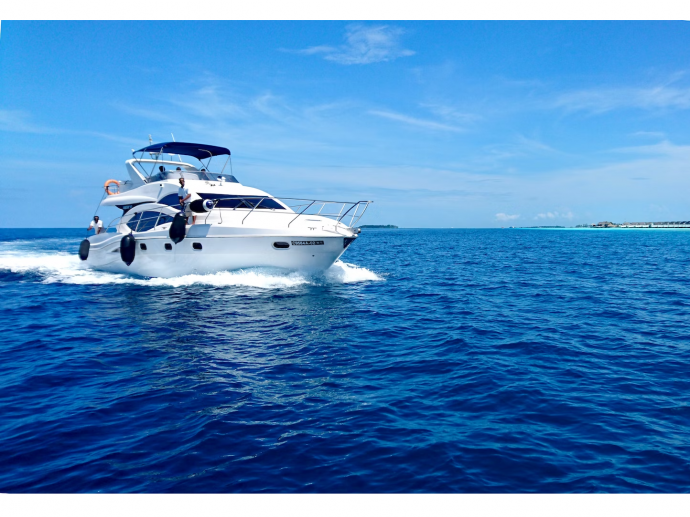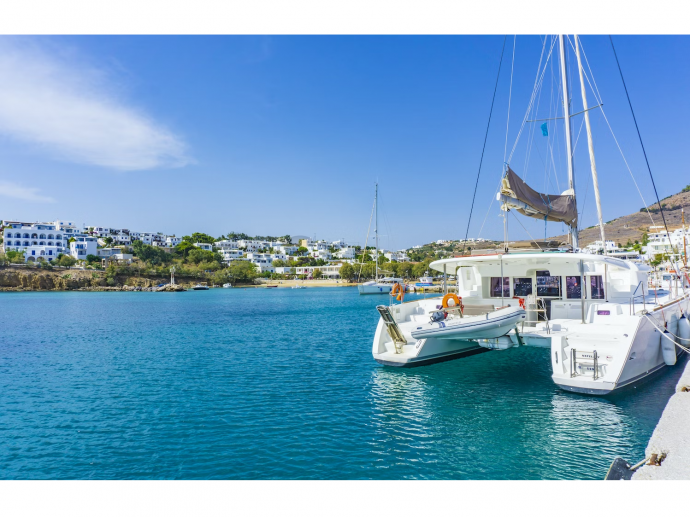Categories more
- Adventures (17)
- Arts / Collectables (15)
- Automotive (37)
- Aviation (11)
- Bath, Body, & Health (77)
- Children (6)
- Cigars / Spirits (32)
- Cuisine (16)
- Design/Architecture (22)
- Electronics (13)
- Entertainment (4)
- Event Planning (5)
- Fashion (46)
- Finance (9)
- Gifts / Misc (6)
- Home Decor (45)
- Jewelry (42)
- Pets (3)
- Philanthropy (1)
- Real Estate (16)
- Services (23)
- Sports / Golf (14)
- Vacation / Travel (59)
- Watches / Pens (14)
- Wines / Vines (24)
- Yachting / Boating (17)
Essential Tips to Consider Before Making a Yacht Purchase
Published
12/07/2023Purchasing a yacht is often thought of as the ultimate purchase for the luxury enthusiast. It is a symbol of prestige and considered a recreational asset that provides an incomparable feeling of freedom and opulence. However, buying a yacht is far from simple. It demands careful planning, profound investigation and meticulous decision-making. The process can be complex, and failing to take into consideration vital aspects could lead to costly mistakes. Based on Simpson Marine's insight on yacht buying tips, this article will provide a plethora of comprehensive useful considerations that prospective buyers should ponder upon before embarking on the intense expedition of purchasing their dream yacht.
Understanding the Purpose of Your Yacht
Before stepping into any yacht sales office, one must first examine their intent for such a purchase. Are you seeking the thrill of offshore adventures or looking forward to weekend escapades filled with tranquil boating? Will it be used for business meetings or for investing in a charter service? Or is it simply for the pleasure of owning a nautical masterpiece? Your motivations for buying a yacht will heavily influence the kind of yacht that is suited to your needs. It primarily determines the size, style, design, features, and functionality of the yacht you should consider.
Deciding on New or Pre-owned
Just like car purchasing, you have the choice between acquiring a brand new or a used yacht. Each has its advantages and setbacks. Buying a new yacht allows for customisation as most manufacturers offer the option to personalise the yacht to your taste. However, this comes at a premium cost and longer delivery time. On the flip side, a used yacht can ensure quicker ownership and potentially significant cost savings, but it could possibly conceal mechanical problems, hence requiring a thorough marine survey.
Yachts come in various types, each designed to cater to different preferences and purposes. Here's a list of some of the common types of yachts:
- Motor Yachts:
Description: Powered by engines, motor yachts are known for their speed and luxury. They come in various sizes, from smaller express cruisers to large, opulent vessels.
- Sailing Yachts:
Description: Propelled primarily by sails, sailing yachts provide a traditional and serene sailing experience. They range from smaller cruisers to large, multi-masted sailing ships.
- Catamarans:
Description: Catamarans have two parallel hulls, providing stability and a spacious deck. They are popular for their comfort, speed, and shallow draft.
- Classic Yachts:
Description: Classic yachts are characterized by timeless and elegant designs. They may be vintage vessels or modern builds with a classic aesthetic.
Evaluating Running Costs
Owning a yacht is not merely about the initial purchase price. There are various running costs involved from maintenance, insurance, docking fees, crew salaries, fuel costs to depreciation, just to mention a few. These ongoing expenses can over time, supersede the initial buying price. Therefore, prospective owners should construct their budget to cover not only the primary cost of the yacht but also its future upkeep expenses.
Choosing the Right Insurance Coverage
Like any major investment, a yacht necessitates insurance coverage. Yacht insurance protects against losses incurred as a result of natural disasters or accidents. Each yacht is unique, and there's no one-size-fits-all insurance policy. It's absolutely vital for the buyer to ensure that the insurance coverage chosen fits the yacht's value, port of registry, cruising area, and the possible risks associated with its use.
Navigating Legal Aspects and Tax Implications
A major transaction like yacht buying goes hand-in-hand with legal implications and potential tax obligations. Therefore, understanding maritime regulations, the process of registration, the flag regulations of the country you choose to register, and the resultant tax obligations is important. This part can be cumbersome for yacht buyers unfamiliar with maritime law which is why it's often recommended to employ an experienced maritime lawyer to guide you through the process.
Researching and Working With a Trustworthy Yacht Broker
The insight of a reputable yacht broker is indispensable in this process. They can assist you in not only finding the right yacht that fits your budget and purpose but also educate you on the market trends, guide you through the legal technicalities and even help with finding the right crew. Working with an established broker who maintains professionalism and demonstrates substantial experience would prove highly beneficial.
Seaworthiness and Inspection
Last but not least, assessing the seaworthiness of the yacht is crucial before finalising the purchase. While aesthetics play a significant role, the yacht's durability, functionality, and safety standards should take precedence. Employing the services of a highly trained yacht surveyor is therefore essential. They meticulously inspect the yacht and identify any underlying issues that might be unidentifiable to the untrained eye.
Buying a yacht is a significant life decision that involves considerable financial commitment and lifestyle changes. It should not be a rushed decision but rather a thoroughly planned affair. This guide serves as your starting point to acquaint you with the essentials before making your dream yacht purchase a reality. Every journey begins with the first step, and understanding these basic concepts can steer you in the right direction in your yacht buying expedition.


















